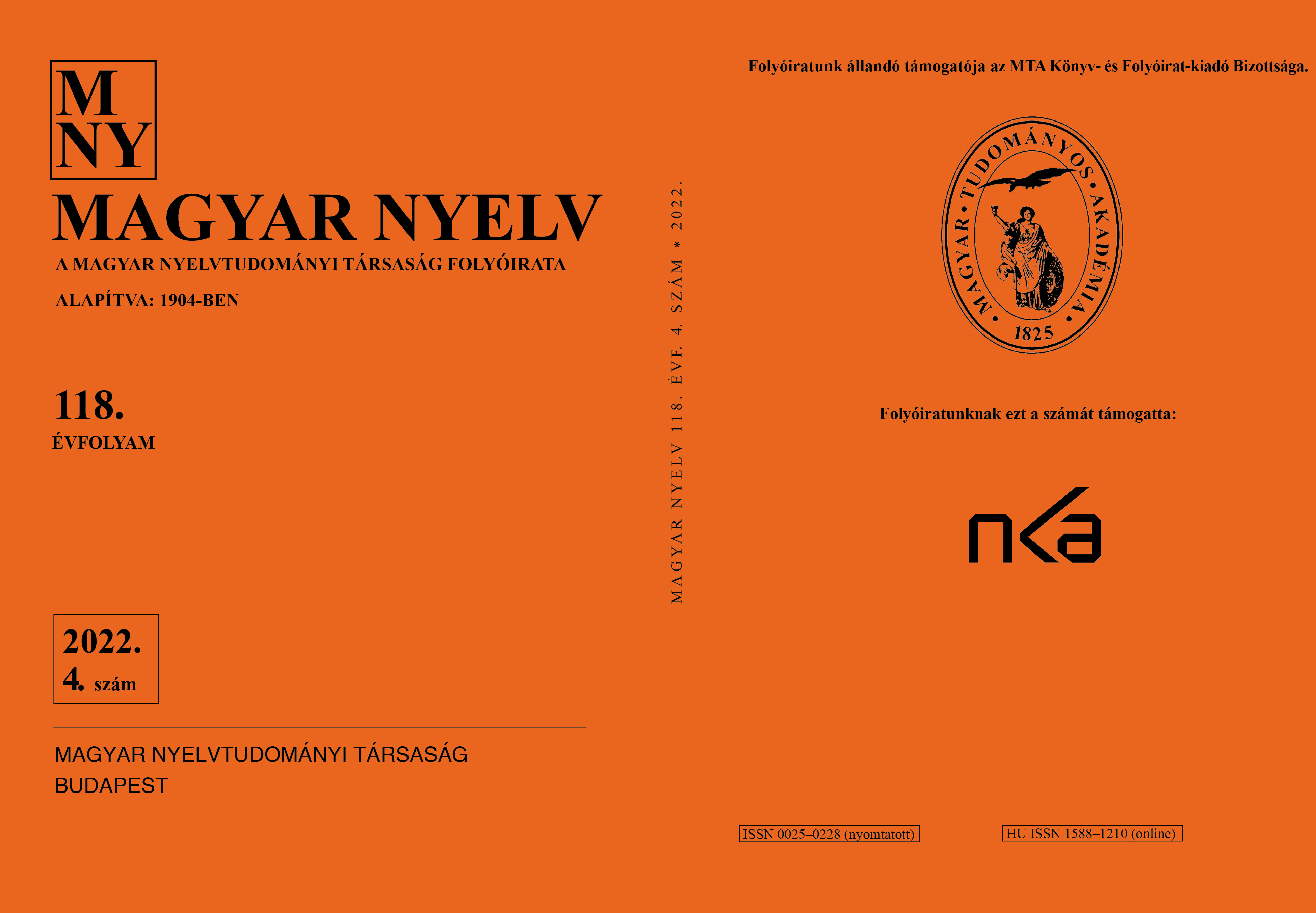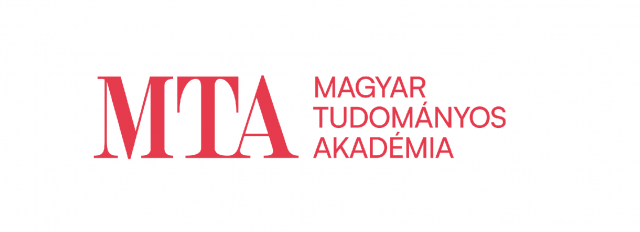A nyelvi tolerancia alakításának lehetőségei
Nyelvi nevelés a II. Rákóczi Ferenc Kárpátaljai Magyar Főiskolán
DOI:
https://doi.org/10.18349/MagyarNyelv.2022.4.407Kulcsszavak:
Kárpátalja, nyelvi tervezés, oktatástervezés, főiskola, nyelvi toleranciaAbsztrakt
A Magyarországon kívül, a Kárpát-medencében élő őshonos magyar közösségeknek – kisebbségi helyzetben élő közösségként – az anyanyelv és az anyanyelvű iskolahálózat megőrzése közösségi, nyelvpolitikai és nyelvtervezési kérdés is egyben, hisz az oktatás tannyelvén, illetve a magyar mint anyanyelv tanításának a tartalmán, szemléletén és módszerein keresztül a közösség jövője, megmaradása, identitásának megőrzése hatékonyan befolyásolható, a nemzetpolitikai és nyelvpolitikai célok az oktatástervezésen keresztül eredményesen megvalósíthatók. Tanulmányunkban empirikus adatokkal alátámasztva azt kívánjuk bemutatni, hogyan valósul meg/valósítható meg a gyakorlatban az a nyelvi- és oktatástervezési folyamat, melyet a kárpátaljai magyar közösség az elmúlt évtizedekben célként számos tudományos munkában felvázolt. Milyen szerepe lehet az eredményességben a nyelvi attitűdnek, s hogyan alakítható, alakítható-e ez tudományos megalapozottsággal a közoktatás és a felsőoktatás szintjén. A bemutatott vizsgálatok eredményei igazolják, az elmúlt évtizedek törekvései eredményesnek bizonyultak: a magyar nyelvű oktatási intézményrendszer minden szinten kiszolgálja a helyi közösség érdekeit; mind a közoktatásban, mind a felsőoktatásban tudományosan megalapozott ismereteket sajátíthatnak el a fiatalok az anyanyelvükről, a többségi nyelvről. A nyelvi tolerancia pedig egy többnemzetiségű, többnyelvű közösség esetében elengedhetetlen.
##submission.downloads##
Megjelent
Folyóiratszám
Rovat
License
Copyright (c) 2022 Anikó Beregszászi, Katalin Dudics Lakatos

This work is licensed under a Creative Commons Attribution-NonCommercial-NoDerivatives 4.0 International License.
A periodika Open Access hozzáférésű (Gyémánt). A dokumentumok elektronikus formában szabadon elmenthetők, másolhatók; változtatások nélkül, a forrásra való hivatkozással használhatók. Az alkalmazás kereskedelmi célokat nem szolgálhat. Bármilyen terjesztési és felhasználási forma esetében az 1999. évi LXXVI. szerzői jogról szóló törvény és az ahhoz kapcsolódó jogszabályok az irányadók. Elektronikus változatára a CC BY-NC-ND (Creative Commons – Attribution-NonCommercial-NoDerivatives) licenc feltételei érvényesek.
A folyóirat a szerzők számára időbeli korlátozás nélkül és díjmentesen engedélyezi, hogy kézirataiknak a szerkesztőség által elfogadott, akár a lektori javításokat is tartalmazó, de nem végleges (ún. pre-print) változatait közzétegyék: e-mailen, a szerző vagy intézménye honlapján, illetve a szerző intézményének, egyetemének zárt vagy korlátozás nélkül elérhető repozitóriumában, illetőleg egyéb non-profit szervereken. Amikor a szerző ily módon terjeszti művét, figyelmeztetnie kell olvasóit, hogy a szóban forgó kézirat nem a mű végső, kiadott változata. Ha a cikk végső változata már megjelent nyomtatott, illetve online formában, mindenképpen javasolt és engedélyezett a szerzőnek ezen (post-print) változatot használnia. Ebben az esetben meg kell adnia a folyóiratbeli megjelenés pontos helyét, adatait is. A szerző a közlemény szerzői jogait megtartja, esetleges másodközlés esetén azonban a cikk első megjelenésének bibliográfiai adatait is közölnie kell.




